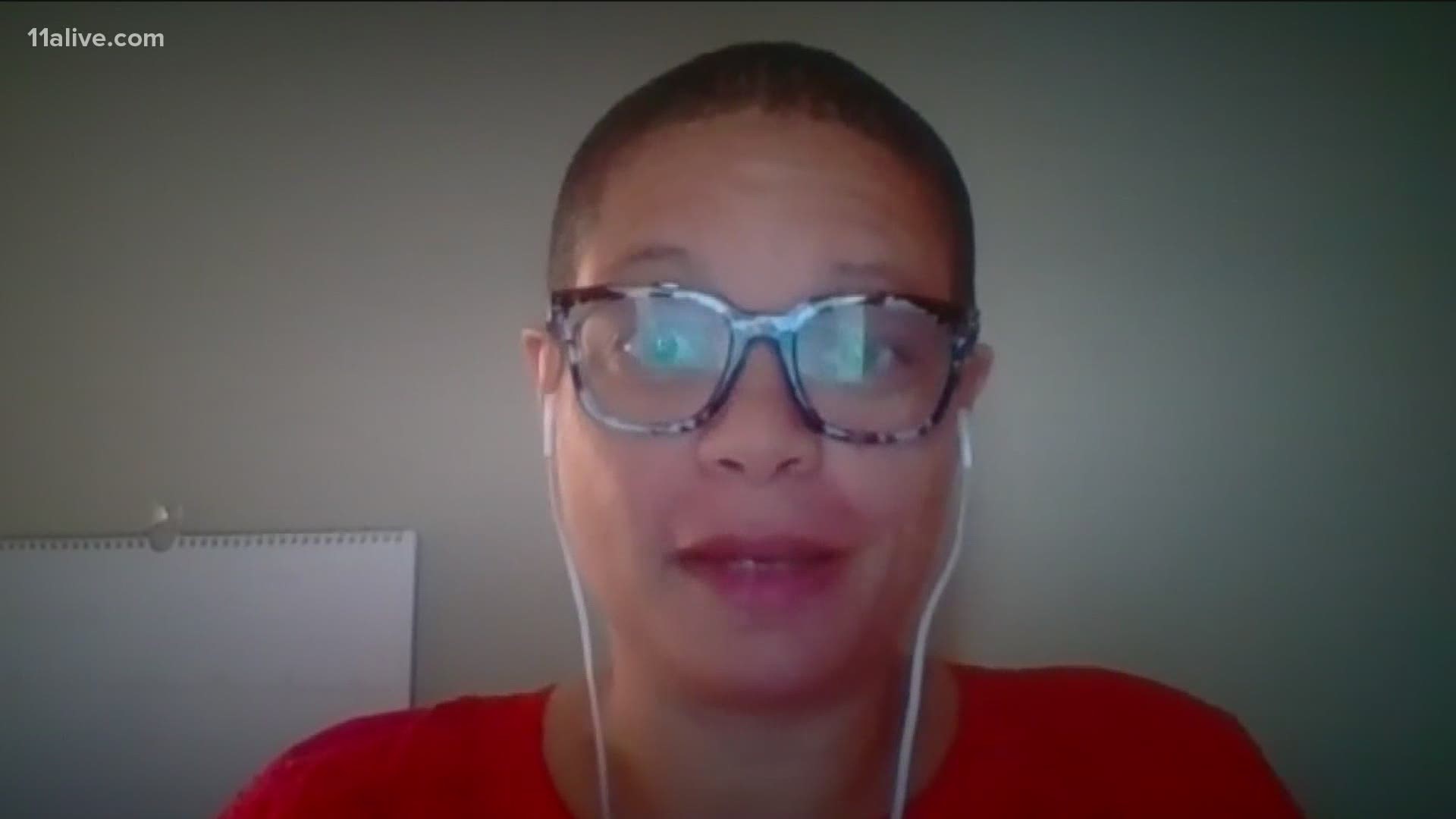ATLANTA — Many people are grappling over a huge decision: should students be receiving in-person learning or virtual learning amid the coronavirus pandemic.
We've heard from local and national officials, parents and students. However, we've rarely heard from the teachers themselves.
11Alive's Christie Diez sat down with five teachers who work across the metro Atlanta area to find out how they feel going into the new school year during this unprecedented pandemic.
Lurelia Freeman is a high school Spanish teacher.
Susannah Swanson is a teacher in the Atlanta area.
Steve Bohn is a teacher at West Forsyth High School.
Mark LeGear is an elementary music teacher in Paulding County.
Gracie Austin is a teacher at Hiram Elementary School in Paulding County.
We asked all of them how they feel re-entering the classroom and they had a mix of answers.
"Dead men don’t work. Dead teachers don’t teach," Austin stated.
However, Bohn had a different response.
"I think it’s a fantastic decision because these kids -- these students need face-to-face contact," Bohn claimed.
LeGear said, "Personally I have some apprehensions but I think that’s probably natural for all teachers at this point."
Freeman said, "I’m very concerned. I really think a lot of teachers are seeing it as a decision between their lives and their work ... and it’s a horrible decision to be confronted with."
Swanson said, "I live with someone who is medically fragile, so it is very close to my heart decision whether or not we go virtual."
Austin said she volunteered to be a virtual teacher because she couldn't figure out how to socially distance her first-grade classroom.
"Our classrooms are not the size of Walmart. We cannot put 24 and 30 children six feet apart in these Petri dishes of classrooms," Austin said. "I’m telling them don’t share when we’re teaching children at this developmental age to share."
Coach Bohn teaches economics and he believes that too much gets lost through a screen.
"If you want your kids to learn, you do it face-to-face," Bohn said. "Even myself talking to seniors ... they were like we want to be in the classroom."
"We always have so many discussions about their lives and things like that that we can’t have when they are online," Bohn said.
Freeman is living with her daughter in Minnesota until numbers in Atlanta come down. She's decided to teach virtually from there.
"I am in a high-risk group both because of my health and because I’m an African-American," Freeman described. "I’m really really concerned about that not being a factor in decisions."
She went on to say, "I really feel like, literally everybody, is talking about us except us. I hear very little commentary or input happening from teachers."
Swanson said she is grateful to start the school year virtually since she cares for someone who is at a higher risk.
"I think my comfort level is important. I can’t teach if I have a lot of anxiety. I can’t be my best for my students if I’m overwhelmed with being afraid of bringing something home and getting sick," Swanson stated.
"None of us are doing it for the money. None of us are doing it to do it halfway. We are really invested, so I think assuming the best about our motives and assuming the best about what we’re trying to do in these digital spaces will go a long way on the days when your kid's laptop won’t connect, the assignment doesn't make sense," Swanson added. "We know those things are going to happen. We don’t want them to, but it’s inevitable."
LeGear's music class will be in person. Since they can't safely sing -- they'll hum.
"I can’t wait to see them. I’m disappointed that I won’t be able to hug them," he said.
LeGear added one of his coworkers had COVID-19 and it made him question if he should risk stepping back into the classroom.
"I’m trying to recognize everybody has a voice and that’s because there’s nobody that’s not affected by changes in public education," he said.

